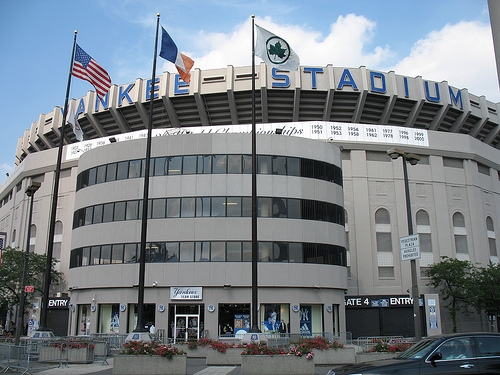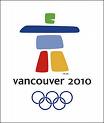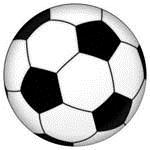When the Winter Olympics started in 2010, the Law Library’s Pat Court wrote a helpful blog post on Olympics and the law, with many relevant links. We realized that it was time for a few updates since the Summer 2012 Games start in London tonight. The broken links in Pat’s post have been fixed. For recent coverage of the Olympics, see the Quick Reference for London 2012, which examines trademarks for this year’s games; this update on drug testing; Slaw’s Guide to Sports and Olympic Games Law; the Peace Palace Library‘s research guide; and, just published today, The Laws Behind the London Olympics from the Law Library of Congress.
 Did you know you can borrow more than books from the Law Library? We have items to help further your work or take a break from it:
Did you know you can borrow more than books from the Law Library? We have items to help further your work or take a break from it:
- 2 Laptops with wireless Internet access and the full Microsoft Office Suite
- 1 Flashdrive
- 5 Digital Voice Recorders (written permission from professor required)
- Several Earphones/Ear Buds
- 1 Calculator
- 10 Umbrellas
- 1 Soccer Ball with Goal

- 1 Frisbee
- 1 Football
- Scrabble
- Chess/Checkers
Coming soon:
All items are available at the circulation desk in the Reading Room.
 The New York Law Journal featured an article today entitled “What Legal Challenges Ahead For New Yankee Stadium?” written by Angela M. Mazzarelli, Robert J. Patchen, and Jeffrey D. Ratner. Despite its title, the article is not a prospective look at the future of the new Yankee Stadium; instead it summarizes ten historic lawsuits involving the former Yankee Stadium.
The New York Law Journal featured an article today entitled “What Legal Challenges Ahead For New Yankee Stadium?” written by Angela M. Mazzarelli, Robert J. Patchen, and Jeffrey D. Ratner. Despite its title, the article is not a prospective look at the future of the new Yankee Stadium; instead it summarizes ten historic lawsuits involving the former Yankee Stadium.
Number 8 on the list is my favorite because of the opinion’s snarky concluding paragraph. In 1927 Harry Schafer purchased tickets for two ringside seats at the Sharkey–Dempsey prizefight at Yankee Stadium for $27.50 each—quite a lot of money then (click here for the results of the bout). Harry and his wife took the train from their home in Oklahoma City to NYC just to attend the fight, only to allegedly find the gates of Yankee Stadium locked. Upset and disappointed, Schafer sued to recover the cost of the trip, but the judge did not believe his story. The judge found that the defendant had, in fact, kept the gates open. But the judge offered Schafer these final words of consolation:
This was the first visit to New York for both plaintiff and his wife. They were there for three days after their tragic experience. They did some shopping in its magnificent stores, and attended the performances at several theaters. Plaintiff should find some consolation in the pride which must be his, that it can no longer be said that he and his wife did not visit the greatest metropolis in the world, and its splendid and stupendous places of amusement.
The case is Shafer v. Rickard, 132 Misc 489 (Mun. Ct. of N.Y., Bor. of Man., 4th Dist. 1928).
If you want to access this or other New York Law Journal articles and you are a Cornell Law student, you have several options available to you. Selected articles (including this one) are available in Westlaw, database code NYLJ. You can ask for a copy of the print publication at the circulation desk in the Reading Room. We keep the most recent issues stored there until we receive it on microfiche. Law students can also access the Journal’s Web site. Some of the articles are free; for articles that are not freely available, email a Research Attorney or ask at the reference desk for a password.
Yankee Stadium Photo by: http://www.flickr.com/photos/kjetilhr/ / CC BY-SA 2.0
 Sometimes work and play are intertwined, and so it is for sports lawyers and law students who really enjoy sports—especially now as the 2010 Winter Olympic Games begin in Vancouver, Canada. Each sport has its own rules, and the Olympics themselves have any number of regulations and arbitration decisions, in addition to a code of ethics.
Sometimes work and play are intertwined, and so it is for sports lawyers and law students who really enjoy sports—especially now as the 2010 Winter Olympic Games begin in Vancouver, Canada. Each sport has its own rules, and the Olympics themselves have any number of regulations and arbitration decisions, in addition to a code of ethics.
Legal issues in the Olympics include drug testing; copyright and trademark issues on the use of the name, logo, mascots, and images from the games; dealing with protesters; and broadcasting rights. The Olympic Charter provides the legal basis for the institution of the Olympics and must be consulted if you are reviewing any Olympics legal issue. Like corporations donating to political campaigns in the U.S., the International Olympic Committee has the status of a person and is responsible for sanctions against athletes and their organizations.
Olympics & International Sports Law Research Guide provides an excellent explanation and links to the most important sources for Olympics and the law. Take time out from your busy studies over the next two weeks to enjoy seeing your favorite winter sport competition – on whatever type of screen you like to use!




